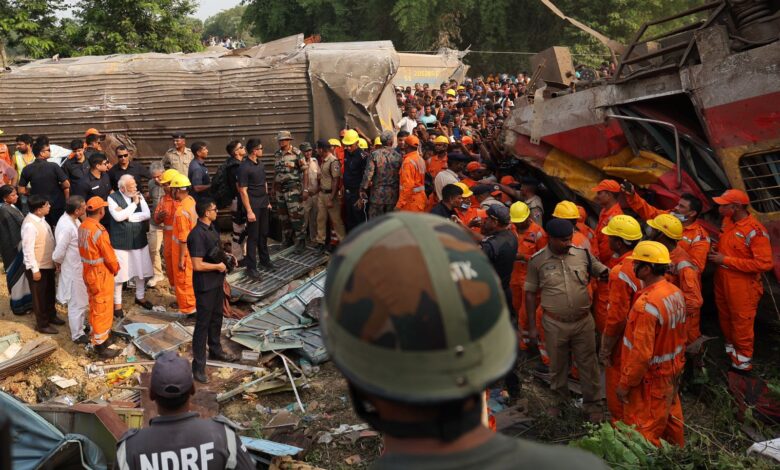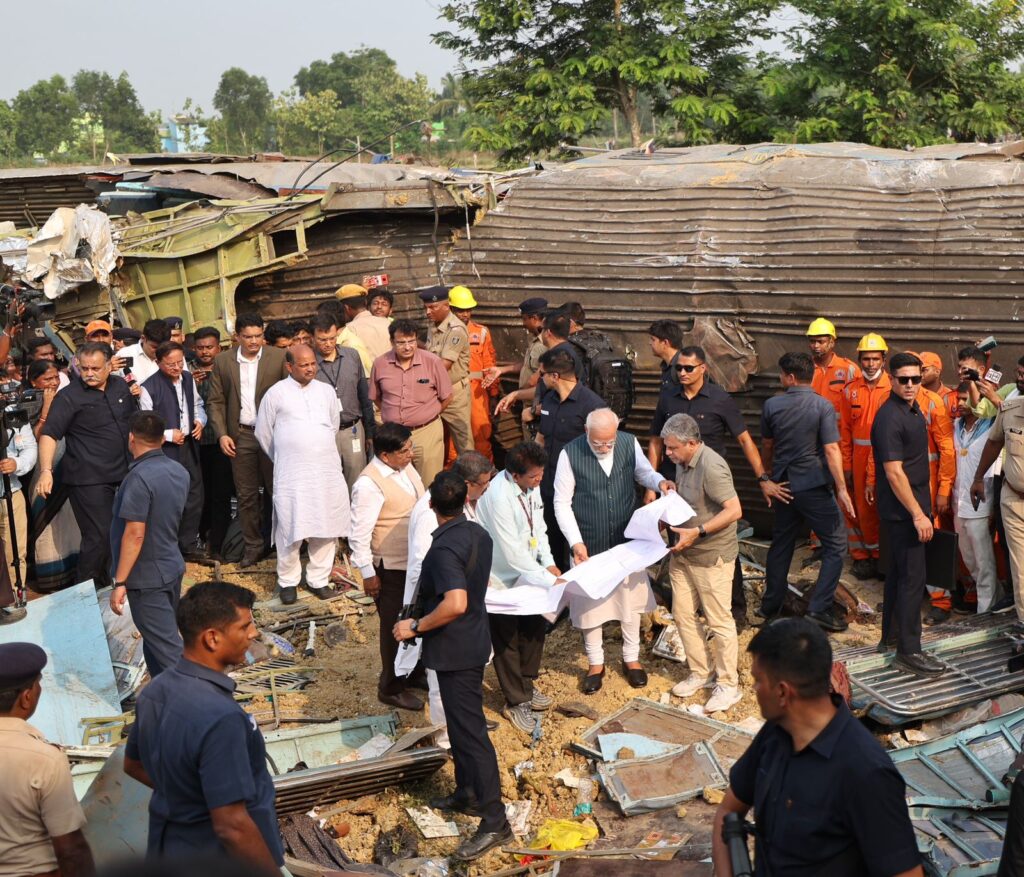Investigation Reveals Cause of Balasore Train Accident; Rail Minister Addresses Controversy
Opposition Calls for Rail Minister's Resignation Amidst Political Debate

Odisha, June 4, 2023 – The root cause of the tragic collision of three trains in Balasore, Odisha, which resulted in the loss of approximately 300 lives and left over 1000 individuals injured, has been identified. Prime Minister Narendra Modi inspected the site yesterday, and the restoration work to repair the track will be initiated today, as confirmed by Railways Minister Ashwini Vaishnaw. The minister aims to complete the restoration by Wednesday morning, allowing trains to resume operations on the track. The bodies of the victims have been removed, marking a significant step forward in the aftermath of the incident.
As the investigation unfolds, opposition leaders have intensified their calls for the resignation of Rail Minister Ashwini Vaishnaw, drawing parallels with past incidents where leaders took moral responsibility for similar tragedies. Citing examples such as Lal Bahadur Shastri and Nitish Kumar, the opposition raises questions about the minister’s accountability. The incident has sparked a heated political debate surrounding the cause of the triple train crash.
Railway Minister Ashwini Vaishnaw, who visited the accident site and engaged in a verbal confrontation with West Bengal Chief Minister Mamata Banerjee, dismissed any discussions of a political nature, emphasizing the necessity of a thorough investigation. As the probe continues, several theories, including the possibility of sabotage, have emerged as potential explanations for the tragic incident.
While signal failure, technical glitches, and human error are among the speculated causes behind the collision involving the Coromandel Express, Bengaluru-Howrah Superfast Express, and a goods train, Shiv Sena Member of Parliament Priyanka Chaturvedi drew attention to the controversial “act of god” argument used following the Morbi bridge collapse in Gujarat. Chaturvedi expressed concern that attributing the crash to an act of god would absolve those responsible of any accountability. She stressed the importance of holding higher-ranking officials accountable rather than solely blaming junior employees.
Saket Gokhale, spokesperson for the Trinamool Congress, raised concerns about the absence of a full-time railway minister and expressed apprehension regarding Ashwini Vaishnaw’s simultaneous responsibilities for two other ministries.
Tensions between Ashwini Vaishnaw and Mamata Banerjee came to the fore during their joint visit to the crash site on Saturday. A confrontation between the two was captured on camera, with Banerjee suggesting a potential death toll of 500—a claim refuted by Vaishnaw, who stated that restoration work was complete and the toll currently stood at 238.
Former Rail Minister Dinesh Trivedi raised the possibility of sabotage, drawing attention to a previous incident in 2010, known as the Jnaneswari Express derailment, which was determined to be a deliberate act of sabotage. Trivedi emphasized the significance of the electronic interlocking system designed to prevent trains from deviating onto unauthorized lines, suggesting the possibility of intentional tampering. While refraining from making hasty conclusions until the official report is released, Trivedi found the circumstances surrounding the crash to be highly unusual.
Preliminary findings indicate that the Coromandel Express, instead of following the main line, unexpectedly veered onto the loop line and collided with a goods train. Subsequently, the high-speed Bengaluru-Howrah Superfast Express crashed into the derailed coaches of the Coromandel Express and the goods train. As investigations continue, the nation anxiously awaits a comprehensive report that will unveil the exact causes behind this devastating triple train crash in Odisha.





